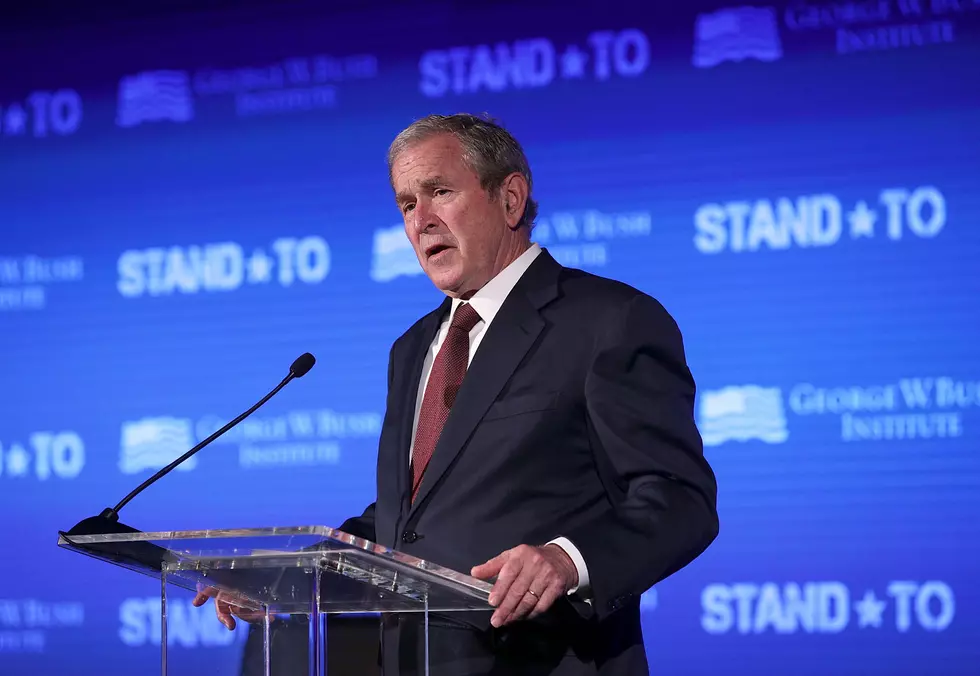
Chad’s Morning Brief: Terror Back on the Minds of Americans, Political Correctness and the Muslims Community, & More
Here is your Morning Brief for the morning of April 22, 2013. Give me your feedback below and tune in to The Chad Hasty Show for these and many more topics from 8:30 to 11am.
1. False Confidence Over Terror Threat? (link)
Today on the show we will begin to look at the Boston Terror Attack while asking how this happened and how this will impact the Obama administration going forward. For years now, we heard that terror isn't the threat it was. In fact, we even did away with the War on Terror. As Peter Foster writes, President Obama lulled this country into a false confidence over terrorism.
In his State of the Union address to the American people earlier this year, Barack Obama declared that he was "confident" of achieving "our objective of defeating the core of al-Qaeda".
Although he acknowledged the need to pursue the "remnants" of the terrorist group and its affiliates, the overall message was clear – al-Qaeda was badly degraded, the tides of war were receding and the US was winning this fight that was no longer even officially a war.
The Boston bombings would appear to present a fundamental challenge to that assessment and once again bring the nagging uncertainty of terrorism back on to the American main street.
It is too soon to be absolutely sure the attacks were motivated by jihadist ideology, but the Islamic videos on the website of the older of the two Tsarnaev brothers point very firmly in that direction.
They bring home the complexity of the global Islamist threat and the fact that it cannot be confined to wars in distant lands, or fought at arm's length using drones, as the Obama administration has quietly yet insistently led America to believe.
Mr Obama and his intelligence community know the threat from al-Qaeda affiliates, but have chosen to downplay it to the US public.
Even when that fight does directly touch on American lives, as it did last September when the US ambassador to Libya was murdered in Benghazi by an al-Qaeda linked group, the administration appears at pains to deny the connection.
Indeed, next week, America's transportation authority is to relax rules on carrying knives on planes for the first time since the September 11 attacks.
But as many counter-terrorism experts have been saying – their voices often drowned out or ignored in favour of the pleasing simplicity of the Obama administration's narrative – the threat from al-Qaeda is too amorphous and shifting to ever have been discounted.
Sadly, this country has to wake up and see that Islamic Extremists are still out there and they hate this country. Islamic Extremists still want to kill us.
2. King: Focus on the Muslim Communities (link)
Is it time to stop being politically correct? Rep. Peter King thinks so and he believes it's time to look into a certain community.
Authorities still are trying to pinpoint the motives behind the Boston Marathon bombings, but a leading GOP congressman pulled no punches on Sunday and urged the FBI to focus on threats from within the Muslim community.
“Ninety-nine percent of Muslims are outstanding Americans, but the fact is, that’s where the threat is coming from,” Rep. Peter T. King, New York Republican and chairman of the House Homeland Security subcommittee on counterintelligence and terrorism, said during an interview on “Fox News Sunday.”
“If you know a threat is coming from a certain community, that’s where you look,” he added.
Terrorists’ strategy, Mr. King said, has changed since Sept. 11, 2001. No longer is al Qaeda or related groups plotting massive attacks from training camps in the Middle East. Instead, they’re using men such as the two suspected Boston bombers, 26-year-old Tamerlan Tsarnaev, who died during a shootout with police on Thursday night, and his brother, 19-year-oldDzhokhar Tsarnaev, who was shot and remains in serious condition in a hospital. Both men were of Islamic faith.
“They’re getting people in our country who are under our radar screen with clean records,” Mr. King said.
He also blasted the FBI for failing to catch the two men before their bombs killed three and wounded more than 160 at the iconic Boston race on Monday. The FBI reportedly had interviewed Tamerlan Tsarnaev but found nothing to link him to terrorism.
Meanwhile, Boston’s Muslim community has strongly condemned the attacks.
“We cannot help but feel angry that all this has happened to our city,” the Islamic Society of Boston Cultural Center said in a statement. “Both of these suspects had been known to our Boston community — to our public schools, to their local boxing club, to one of our faith communities at the Cambridge mosque, and even to the FBI. Yet, no one inside these institutions was able to predict these acts of terror by the alleged suspects. This hurts, and we wish we all … could have done something to prevent this.”
What are your thoughts on what Rep. King said?
3. Local vs State Issues (link)
If your city council passes an ordinance, should state lawmakers be able to come in and pass a state law to do away with the ordinance? That's what some lawmakers are looking to do.
State Rep. Jonathan Stickland lives 280 miles away from San Antonio, but he’s making it a priority of his first term in office to erase a knife ban enacted by the City Council.
Such ordinances aren’t likely in his decidedly Republican Hurst-Euless-Bedford district. But Stickland says that San Antonio has trampled its residents’ Second Amendment rights and that it’s his job to protect Texans from patchwork weapons laws imposed by overreaching city councils.
“The San Antonio lock-blade ordinance is just one example of overbearing municipal regulations that risk turning regular citizens — even ones who have consulted state laws to ensure they are in compliance — into criminals,” Stickland said.
He is among a handful of lawmakers, mostly Republicans, pushing to limit local control — a conservative tenet —with bills that reach into other lawmakers’ districts but have no immediate effect on their own constituents.
The bills include bans on some local ordinances and restrictions on school district policies. Lawmakers see tension between local control and personal rights, and there’s an ongoing debate among conservatives about how much the state needs to protect Texans from local officials.
“What you’re observing is the debate within the Republican Party and the conservative movement, for which there is no consensus,” said Steve Munisteri, chairman of the Republican Party of Texas. “In most conservative minds, you can use government to trump local control to protect a different [constitutional] right. But the rub comes in with, when does that occur and when is that balance justified?”
Two bills by Rep. Drew Springer, R-Muenster, have drawn some fire from Central Texas lawmakers because they affect Austin and Pflugerville — about 260 miles from his district north of Dallas.
One bill would prohibit bans on plastic bags, a direct hit on an ordinance that went into effect in Austin in March. Officials in other cities, including Dallas, are considering similar bans.
The second would cut some funds from school districts that offer benefits to people who are not employees and not dependents of employees — a run at the same-sex domestic-partnership benefits offered by the Austin and Pflugerville school districts.
“To think Pflugerville has sued the state for more funding, while at the same time bankrolling a lifestyle most Texans do not agree with, is quite disturbing to me,” Springer said when he announced his measure in February.
Springer said his constituents don’t want to spend money that belongs in the classroom to cover people who aren’t family members, whether in same-sex relationships or not. He also said that although no schools in his district have plans to offer the benefits, they might in the future.
Sometimes, he said, the state needs to rein in the local governments when “there is no end to what they would throw under local control.”
During a hearing last week on the measure, Rep. Joe Deshotel, D-Beaumont, noted the apparent contradiction.
“Local control seems to be a lot like love,” he said. “Everybody’s got their own idea of it.”
Democratic Rep. Dawnna Dukes, whose district includes Pflugerville and Austin, does not support the legislation and said Springer is overstepping.
“Sponsoring such measures is contradictory to the universal principle of his party of local control,” she said.
Filing legislation that affects only another lawmaker’s district — or fighting such measures — is considered a breach of decorum among lawmakers.
But that doesn’t always stop them.
In 2011, Republican Rep. Larry Gonzales pushed for a bill to allow Round Rock voters to decide whether to expand the use of a local tax to build a new facility.
Gonzales was miffed at opposition by some Republicans, who mistook the proposal for a tax hike. He said the bill was “none of their business.”
“I don’t need somebody from the Panhandle or West Texas telling me that my legislation isn’t worthy to pass,” he said.
Cities often need to pick up where state government falls short in regulating things such as payday lenders and plastic bags, said Bennett Sandlin, executive director of the Texas Municipal League.
“If the state doesn’t want to regulate harmful plastics, that’s fine,” Sandlin said. “But don’t complain when some citizens in a few cities decide it’s a priority.”
Interesting article. Why I find the Austin bag ban stupid, I don't see it as the State's job to jump in and save them. If the people in Austin get fed up with their council, then they will vote them out.
Thoughts?
Other Top Stories:
These and many more topics coming up on today’s edition of The Chad Hasty Show. Tune in mornings 8:30-11am on News/Talk 790 KFYO, streaming online at kfyo.com, and now on your iPhone and Android device with the radioPup App. All guest interviews can be heard online in our podcast section after the show at kfyo.com.
More From News/Talk 95.1 & 790 KFYO







![19 Years Later, We Will Never Forget [OPINION]](http://townsquare.media/site/192/files/2016/02/World-Trade-Center-Attacks-Getty-Images.jpg?w=980&q=75)

